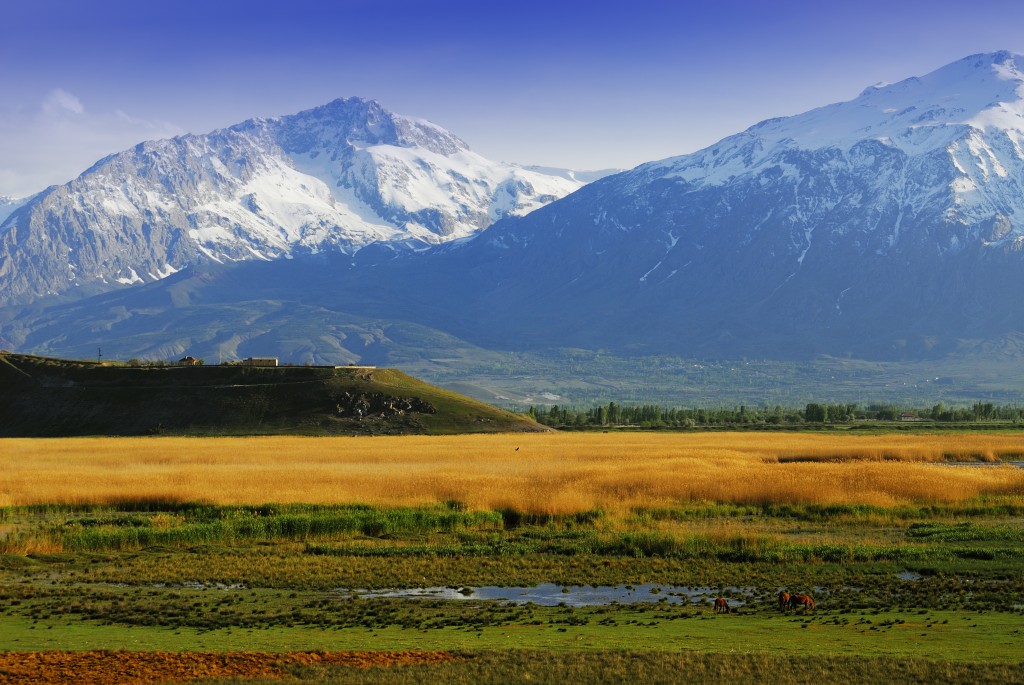Freshwater plays a vital role in the continuation of life. Rivers, like the veins in our body, connect the web of life on the planet. Rivers and lakes have helped shape the evolution of life on Earth, as well as human cultures. When rivers and other freshwater ecosystems become disconnected, their function in maintaining and generating life deteriorates severely.
Turkey has a very dense water network due to its geomorphological structure. The country consists of mountain ranges, which allow the rivers to flow into as many as 30 separate basins. It is the only country of its size that has so many different river basins, fed by several alluvial rivers. In alluvial rivers, the bed and banks are made up of mobile sediment and/or soil. Since mountainous slopes are steep, the carrying capacity of rivers is high. Turkey’s geographical structure is also reflected in diversity of wetlands. Anatolia contains many unique wetland ecosystems of undeniable importance. There are 135 wetlands in Turkey recognized as being of international significance and 13 of these wetlands are protected under the Ramsar Convention.
Doğa’s nation-wide assessment of threats to 305 Key Biodiversity Areas (KBAs) has shown that large-scale irrigation, drainage and dam projects make up the most significant threats to Turkey’s nature. Currently, irrigation and drainage projects affect 225 KBAs, while dams affect at least 185 of these areas. Several closed basins, like Lake Burdur Basin, Konya Basin and Akarçay Basin already face immense water stress. In these regions, wetlands of international importance have been lost and farmers are abandoning their land because of insufficient water available for irrigation. So far, nearly half of all natural wetlands in Turkey have already been lost (ca. 1.5 million hectares). Many other wetlands are under threat of further depletion, unless Turkey’s water policy is adapted and based on a more integrated approach to the problem.
Along with lakes, river ecosystems of Turkey are also severely threatened. As it currently stands, the government of Turkey plans to construct 1,738 dams and hydroelectric power plants by 2023. However, the nearly 2,000 irrigation and drinking-water dams are also underway totaling up to nearly 4,000. The total length of river systems in Turkey that will be converted to HEPP’s or dams is around 10,000 kilometers, leaving very little of no room for natural ecosystems to function. Hence, there is a serious concern that by the year 2023, there will be virtually no healthy rivers systems left in Turkey. There are neither environmental nor sociological impacts assessments of these projects at the basin or country level. Therefore, no one has a projection on how these large numbers of projects will, in total, affect Turkey’s biodiversity and people living in the countryside, while the contractions of hundreds of new dams goes on.
The results of the Birds in Europe publication of BirdLife international shows that the fastest rate of decline in bird populations is encountered in Turkey compared to other European countries. Data on Turkey’s birds show that 55% percent of 319 bird species have severely decreased in number over the last decade due to the destruction of their natural habitats, primarily resulting from water projects.
Doğa’s Freshwater Strategy
Doğa’s Freshwater Programme aims to improve the conservation status of Turkey’s wetlands via improving knowledge, community-based site conservation and fostering a strong and self-sustainable conservation community. The overall approach of the programme is involving and empowering the grassroots at all aspects of wetland conservation – from research to on-the- ground site conservation, lobbying and communication to capacity building and campaigning.
The programme aims to assess and continuously monitor the status of priority wetlands in three regions – Central Anatolia, Eastern Anatolia and the Mediterranean – using selected indicator species. On-the-ground actions of the programme for 2016 cover the Burdur Closed Basin, Hasankeyf and Tigris, Gediz Delta, Orhanlı Valley, Seferihisar and Southern Euphrates Valley. Doğa is already involved in conservation action at these sites, particularly in Burdur, Gediz Delta and Hasankeyf over the past eight years. On- the-ground work of Doğa at these sites comprises different aspects of community-based conservation, habitat restoration, advocacy and campaigning.
Doğa’s Freshwater Programme aims to deliver five milestone products on wetland conservation: Reports on Turkey’s priority wetlands and community-based conservation of wetlands in Turkey, one Site Conservation Guide, a full documentary film of Turkey’s wetlands and biodiversity and an updated version of Key Biodiversity Areas book in Turkish and English. The programme also includes development of a community-based wetland monitoring system, wetland conservation school, capacity building trainings and a range of communication and lobbying activities that will, collectively, streamline applied research, networking and capacity development for local conservation groups and conservationists enabling the self-growth of the conservation community in Turkey.
Report: HEPP’s, Dams and the Status of Nature in Turkey /Turkish Water Assembly 2011
Photographs: © Ali Şenel

